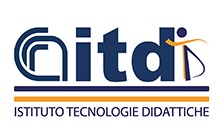Network Technologies and School Inclusion
Framework
This project builds on and extends the successful outcomes of the TRIS project, which developed and tested a model for the deployment of inclusive hybrid classes centred on the use of cloud-based resources. The chief purpose of these hybrid classes is to facilitate the educational and social integration of students who, for reasons such as long-term hospitalisation, are enable to attend regular classes on school premises. Like its predecessor, TRIS 2 forms part of joint collaboration between Italy’s Ministry of University, Education and Research, the Italian National Research Council, and the Telecom Italia Foundation.
Objectives
- Complete the pilot testing of the original TRIS model;
- Upscale the deployment of the TRIS model through the wide-scale transfer of related know-how and competencies. This will be achieved through a MOOC (Massive Open Online Course) based approach combined with specialised counselling on specific cases.
Major activities
- Completion of pilot experiences, with special regard for the transition from lower and upper secondary level;
- Development of a MOOC to be made available not just in open mode but also as a tutored training course;
- Piloting and validation of a beta version of the MOOC before full-scale release;
- Monitoring of MOOC activity and evaluation of the two distinct modes of use;
- Counselling for newly participating teachers via a helpdesk;
- Collection and analysis of data related to MOOC tutoring and helpdesk counselling for the purposes of deriving a knowledge base. This will underpin the introduction of a chatbot capable of providing automated support in both roles.
At the same time, TRIS 2 will:
- Conduct a nationwide survey regarding housebound and hospitalised students suffering from serious illnesses or conditions;
- Map the various strategies adopted to cater for the needs of these students.
Expected results
- Final optimisation of the architectural model underpinning TRIS;
- Extension of the model to cover cases of prolonged or periodic school absence (it presently addresses permanent absence only);
- Wide-scale teacher training deployed via MOOC;
- Development of a chatbot that draws on the aggregated knowledge base in order to provide automated support;
- Nationwide mapping of school absence caused by serious conditions and illnesses, as well as the successful strategies employed to cope with these cases.

 Italiano (Italia)
Italiano (Italia)
